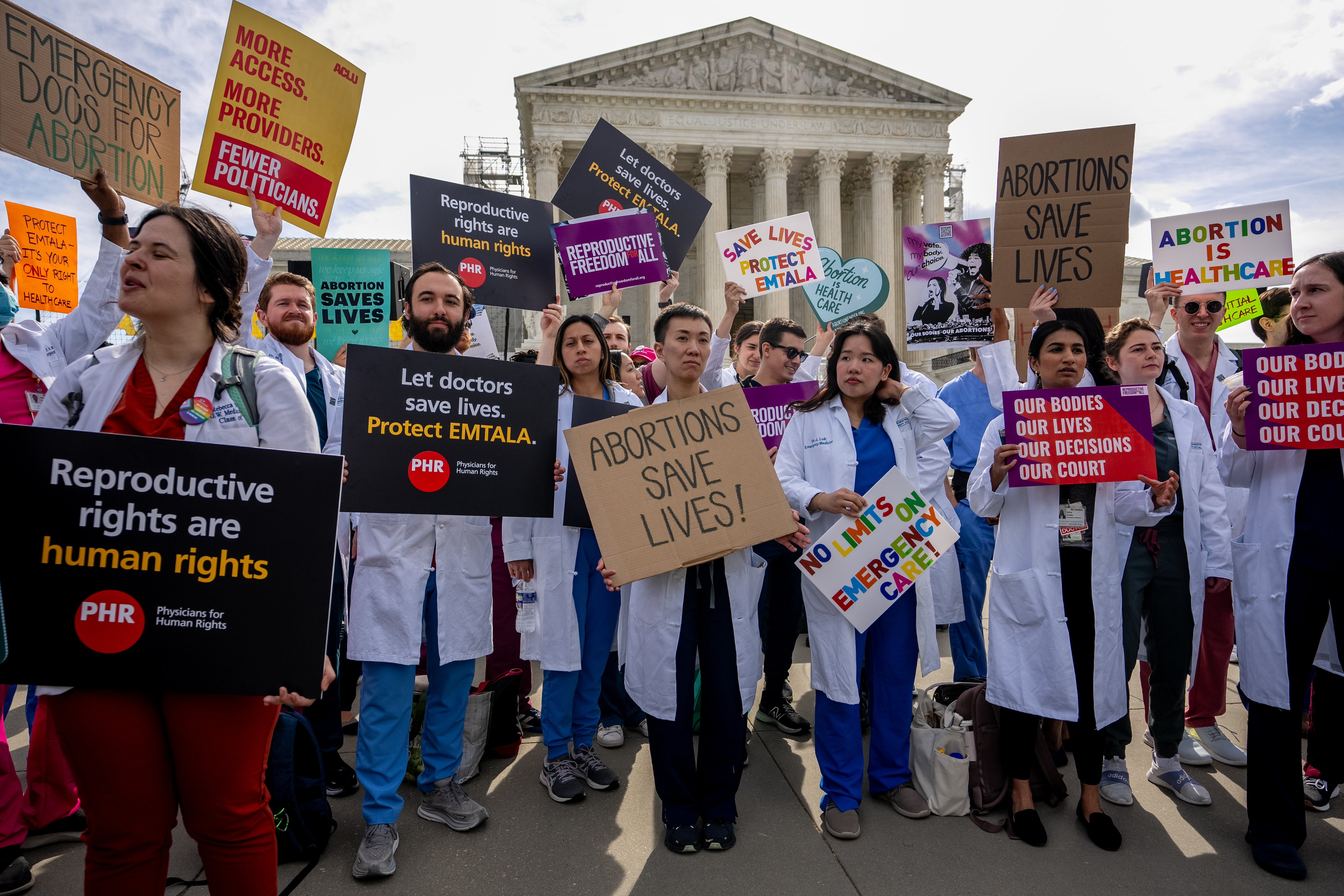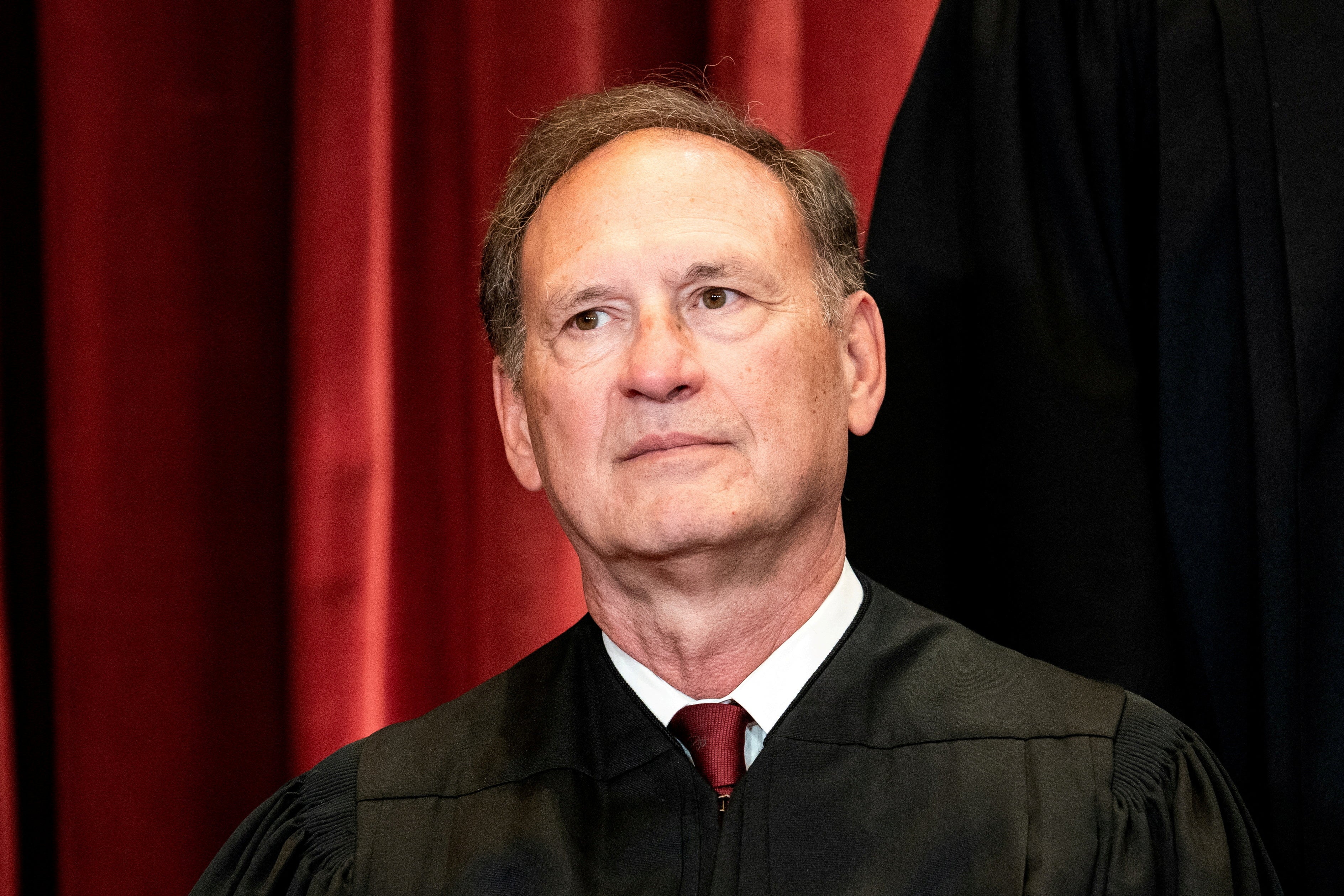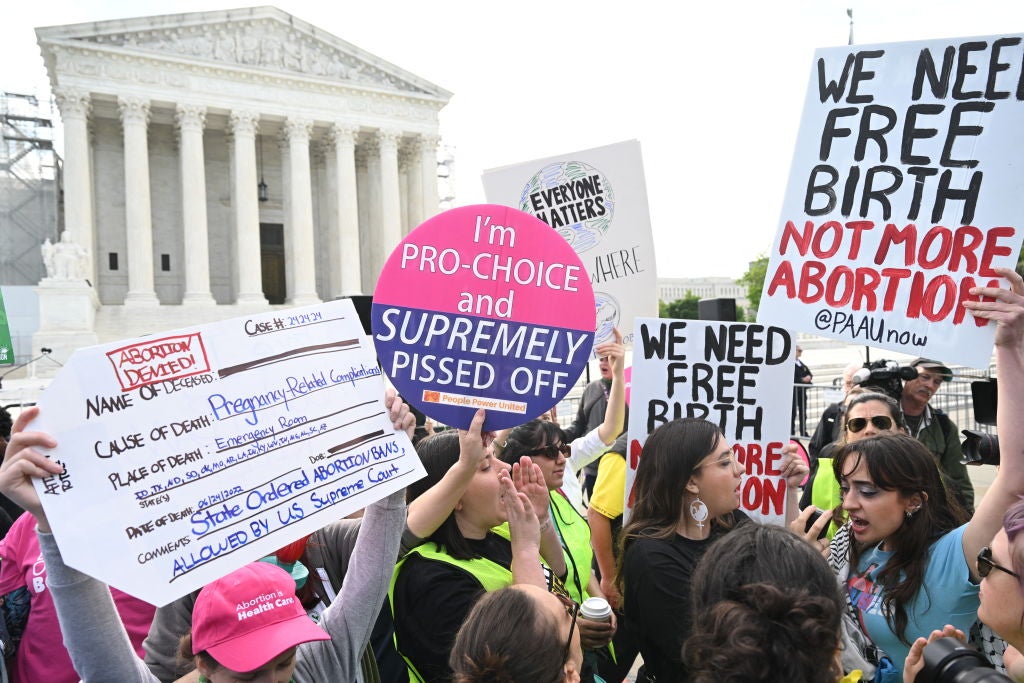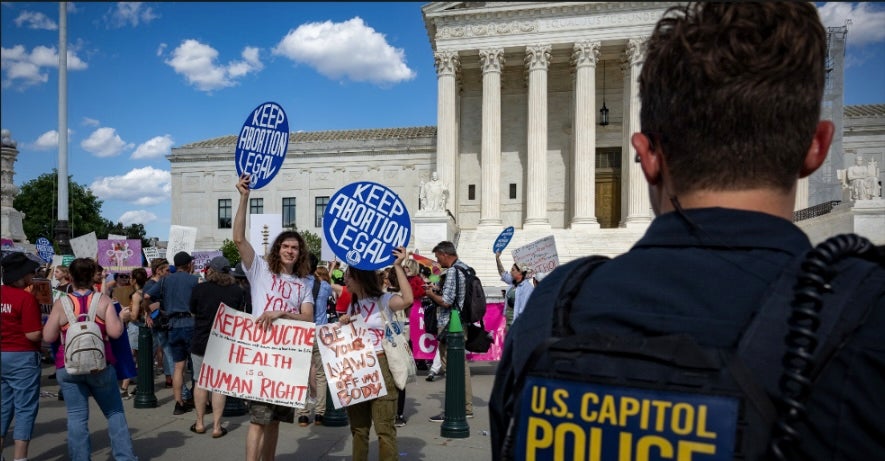Justice Alito says allowing abortions in medical emergencies is ‘bizarre’ as he fights for rights of ‘unborn child’
The Supreme Court handed abortion rights advocates a narrow win, for now, in case about emergency abortions
Justice Samuel Alito emphatically dissented from the Supreme Court’s decision to allow hospitals in Idaho to perform emergency abortions – claiming doctors must protect an “unborn child” under a federal law.
In a 6-3 decision on Thursday, justices declined to issue a firm ruling on whether states can force patients with life-threatening pregnancies to get to the brink of death before they can get an abortion
The ruling means that emergency abortions can continue – but the decision leaves the door open for plaintiffs to bring similar challenges.
Alito, joined by justices Clarence Thomas and Neil Gorsuch, called the decision “baffling,” claiming the federal law that gives emergency rooms funding doesn’t permit abortions – it does the opposite in demanding hospitals protect the health and treat a pregnant person as well as the unborn child.
“It goes without saying that aborting an ‘unborn child’ does not protect it from jeopardy,” Justice Alito wrote.

Alito, who authored Dobbs v. Jackson decision - the case that overturned Roe v. Wade abortion protections- criticized the other justices for permitting the decision believing the state law did not conflict with federal mandates under the Emergency Medical Treatment and Active Labor Act.
He argued if hospitals find a pregnant person in an emergency medical situation, they must also consider the health of the “unborn child” at equal weight until the life of the mother is in jeopardy under federal law. Alito raised concerns that a person could “request” an abortion in situations where their health, but not necessarily life, is at risk.
“Apparently, the Court has simply lost the will to decide the easy but emotional and highly politicized question that the case presents. That is regrettable,” he wrote.

The case comes out of Idaho, which enacted a strict abortion ban in 2022 that imposes criminal penalties on doctors who perform abortions but includes a narrow and vague exception to protect the life of a pregnant person.
That exception says a physician must use “good faith medical judgment” to determine whether an abortion is necessary to prevent a person from death. However, it fails to clarify what “good faith” means – leaving many doctors and hospitals susceptible to criminal penalties.
The Biden administration intervened, saying the Idaho law conflicted with federal law which requires emergency room doctors to use medical intervention necessary to stabilize a patient. However, the law does not explicitly mandate which medical treatments, like abortions, are necessary.
During oral arguments in April, the Idaho Solicitor General argued that allowing federal law to override state law would result in other state laws, like informed consent laws, being overridden. He argued that there was no gap between state laws and federal regulations, saying the state can provide abortions on a “case-by-case” basis so long as a physician had “medical certainty” that a pregnant person would die without an abortion.

Justice Amy Coney Barrett, a conservative appointed to the bench by Donald Trump, said she was “kind of shocked” to hear the attorney for the state confirm that ambiguity.
U.S. Solicitor General Elizabeth Prelogar pushed back on the Idaho attorney’s claims, reminding justices that about once every other week the state is forced to wait for a pregnant person’s condition to deteriorate to the point they can transfer them out of state or provide an abortion.
In her partially concurring opinion, Justice Ketanji Brown Jackson called the months-long debate “completely unnecessary” and a “catastrophe”. She disagreed with the court’s decision not to make a firm decision.
“To be clear: Today’s decision is not a victory for pregnant patients in Idaho. It is a delay. While this Court dawdles and the country waits, pregnant people experiencing emergency medical conditions remain in a precarious position, as their doctors are kept in the dark about what the law requires.”

The decision arrives amid several high-profile incidents where pregnant women have detailed physically and emotionally traumatizing medical situations where they were denied abortions due to state laws but faced sepsis, severe bleeding, pain and more.
Without constitutional protections affirmed by Roe v Wade, several anti-abortion states have exploited a lack of clarity in the “good faith” clause to impose sweeping restrictions on emergency abortion care that have risked the lives of pregnant patients.
“We are constantly in the heat of the moment, trying to decide what is the legal choice. We all know what the standard of care is, we know what the patient needs,” according to Dr. Jessica Kroll, president of the Idaho chapter of the American College of Emergency Physicians, speaking to reporters this month.
“It criminalizes physicians and has driven physicians out of the state,” she said. “Everyone is practicing confused, afraid, and it’s hurting patients … If we start piecemealing who we take care of, despite what we believe, we cannot take care of people. Our job is to take care of patients, not be moral police in the emergency room.”
Join our commenting forum
Join thought-provoking conversations, follow other Independent readers and see their replies
Comments
Bookmark popover
Removed from bookmarks